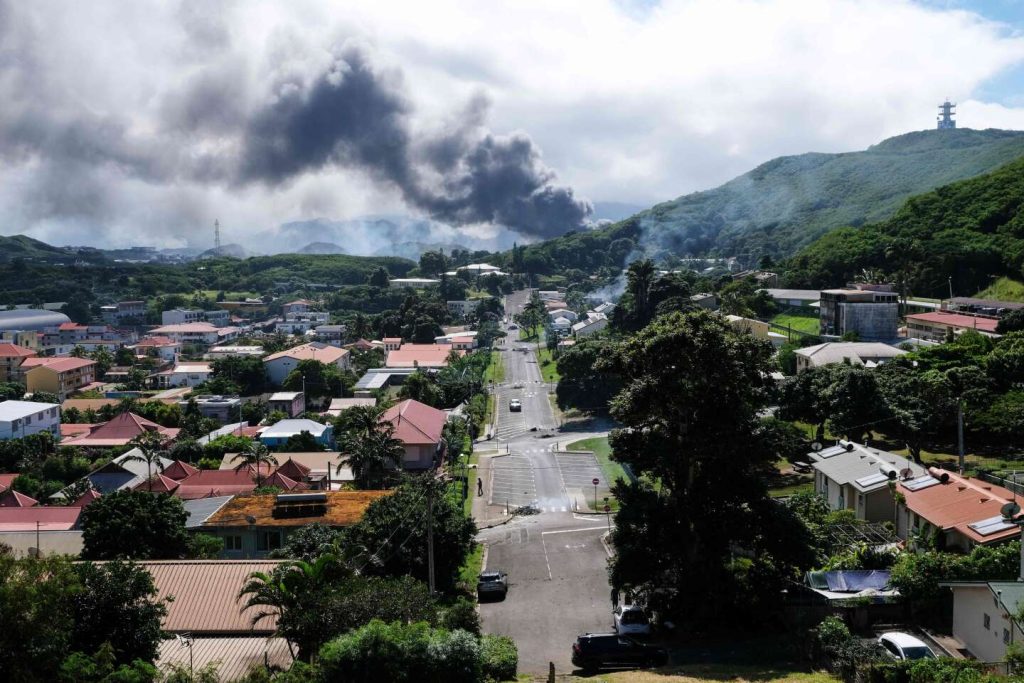In Nouméa, New Caledonia, riots continued on the night of Tuesday, May 14th to Wednesday, May 15th, resulting in the death of one person from a gunshot, as announced by the High Commissioner of the Republic, Louis Le Franc. The situation was described as “insurrectional” with exchanges of birdshot between rioters and civilian defense groups in Nouméa and Paita and an attempted intrusion at the gendarmerie brigade in Saint-Michel. The High Commissioner reported a total of 140 arrests in Nouméa and announced the closure of schools and the airport amidst the most severe violence since the 1980s.
Despite the curfew imposed by the High Commissioner, acts of vandalism continued in Nouméa, with public infrastructures burning and cars destroyed. Food shortages in stores led to long lines of people waiting to buy basic necessities. There were also reports of armed groups patrolling the streets. A collective movement involving around fifty prisoners that started at the Camp-Est prison was controlled by law enforcement, but many officers were injured in the process and businesses suffered damage.
In response to the violent events, President Emmanuel Macron called for calm and condemned the violence, urging all parties to engage in dialogue. The indigenous independence movement, FLNKS, called for a withdrawal of the government’s reform project to preserve the conditions for a global political agreement. The situation was further exacerbated by the call for a state of emergency by a non-independence leader, Sonia Backès, due to the perceived escalation of the conflict.
Criticism was directed towards the French government’s handling of the situation in New Caledonia, with accusations of ignorance of the local history and colonial legacy. Politicians called for dialogue and a political solution to the crisis, emphasizing the need for understanding and respect towards the indigenous Kanak population. Former Prime Minister Edouard Philippe had warned of the escalating tensions, pointing to the lack of effective leadership on the issue. Various suggestions were made to address the crisis, including the creation of a new dialogue mission led by Prime Minister Gabriel Attal.
The escalating violence and unrest in New Caledonia have raised concerns about the potential for further conflict and the need for a peaceful resolution. The situation remains volatile, with calls for dialogue and a comprehensive political agreement to address the underlying issues and prevent further violence. The French government faces criticism for its handling of the crisis, with calls for a more inclusive and thoughtful approach to resolving the conflict in the region.


